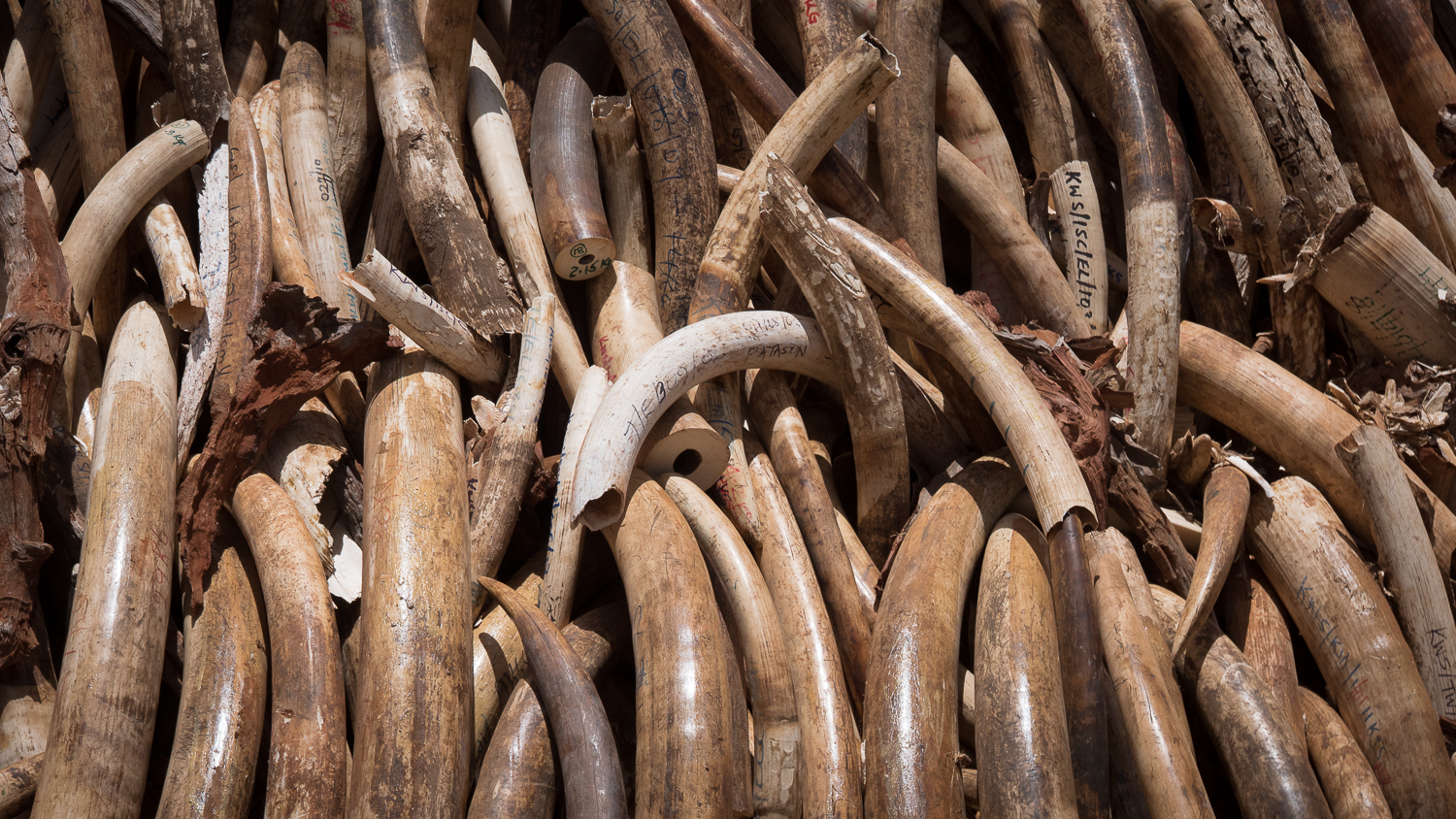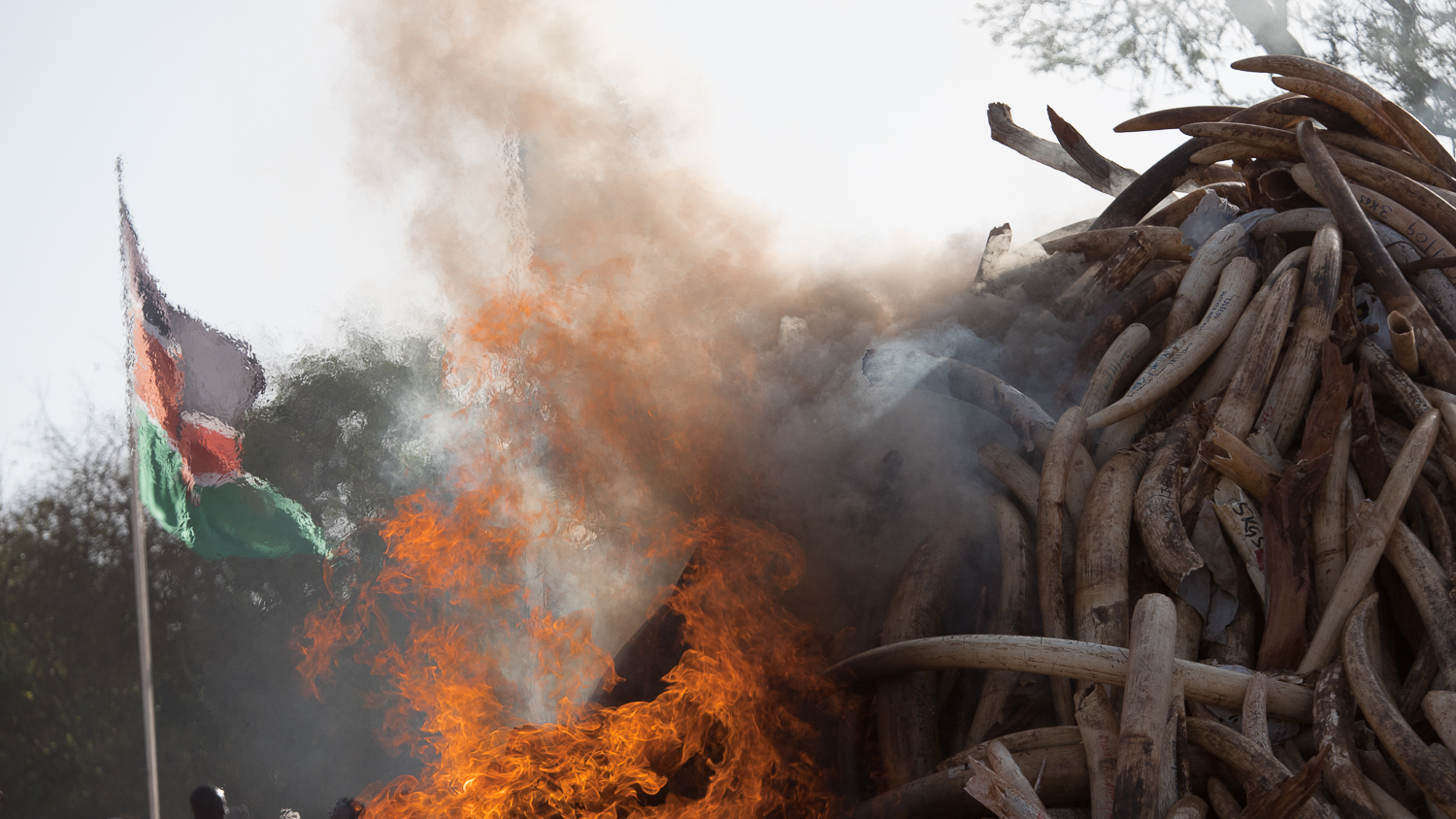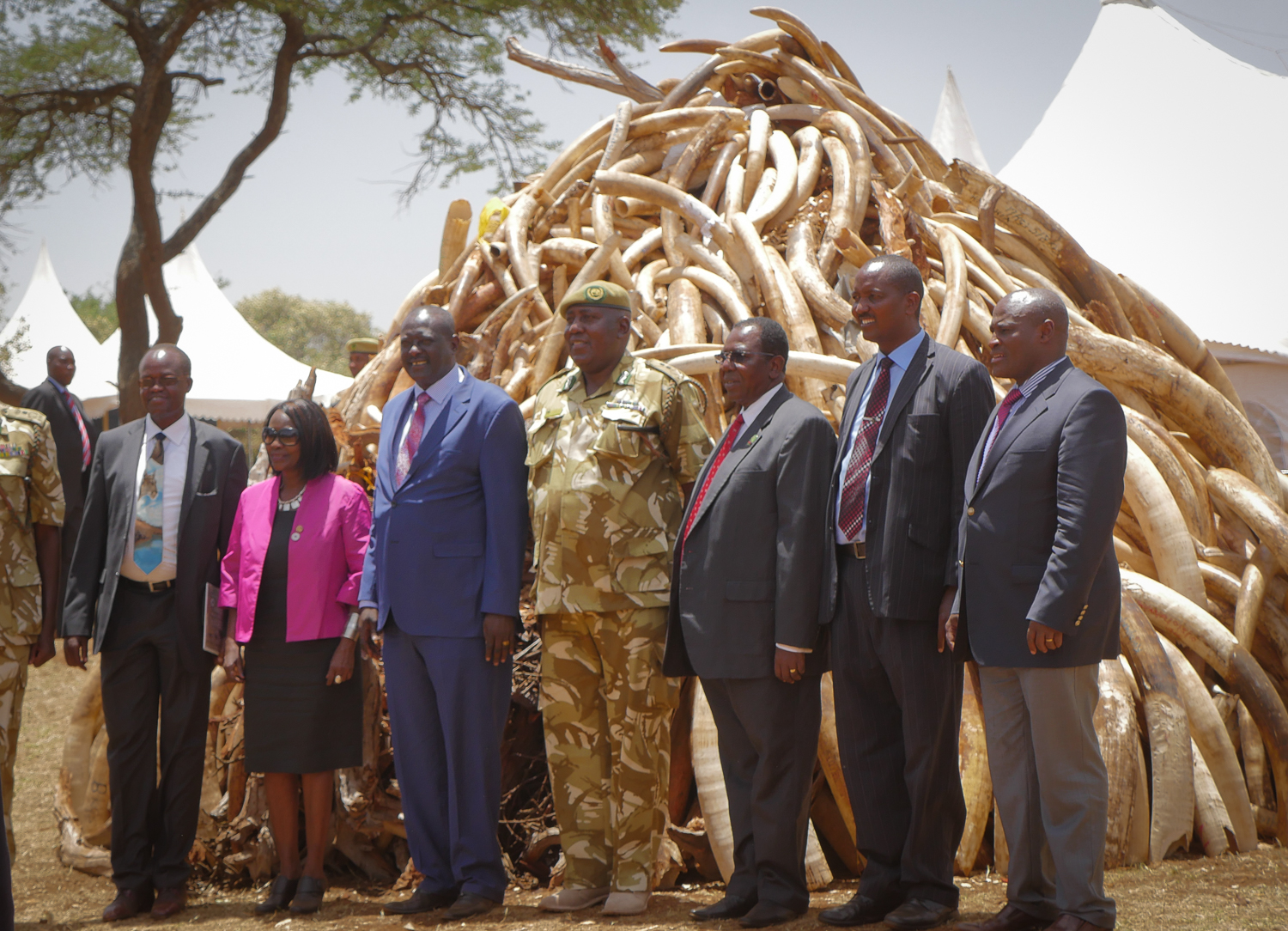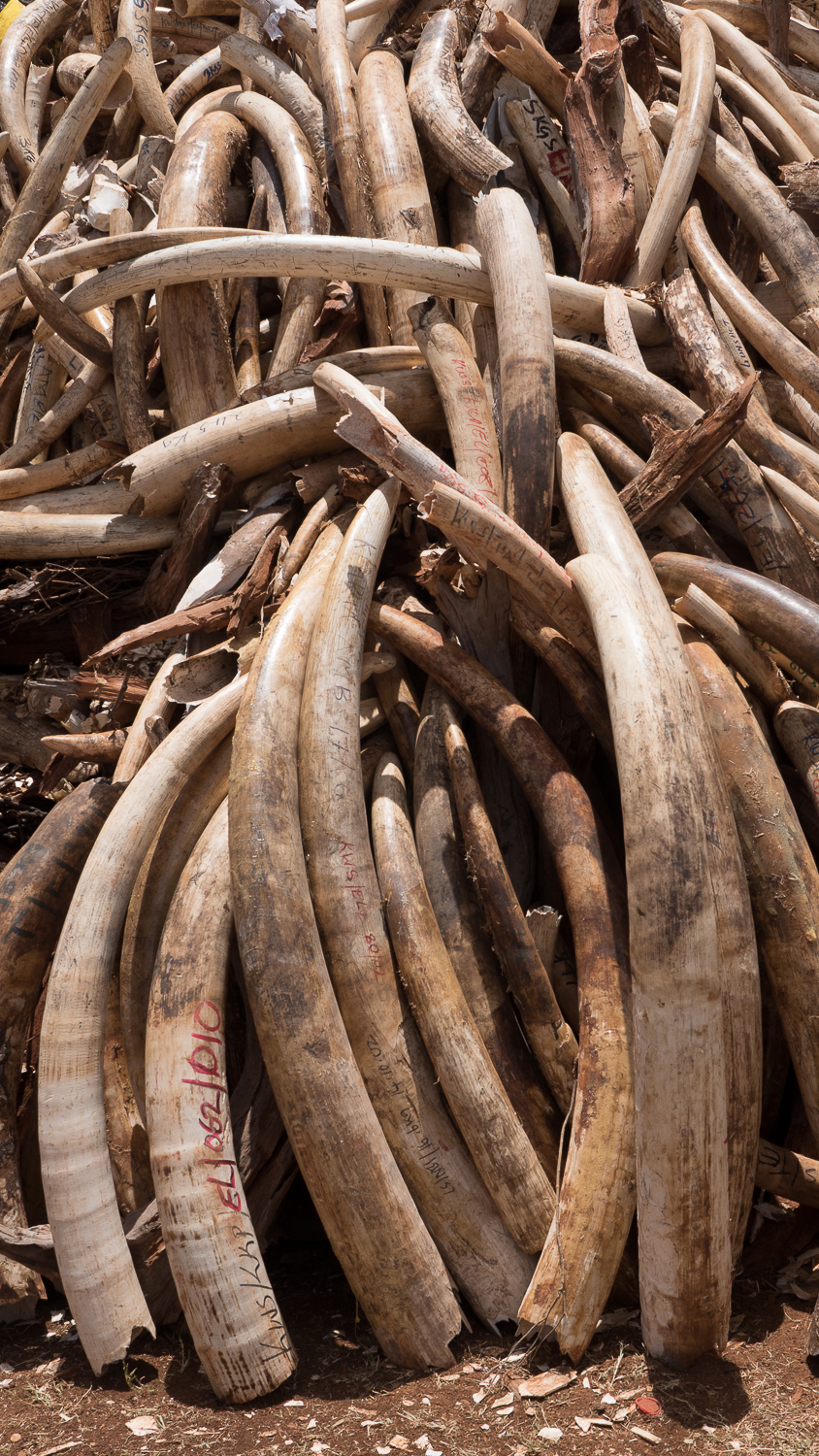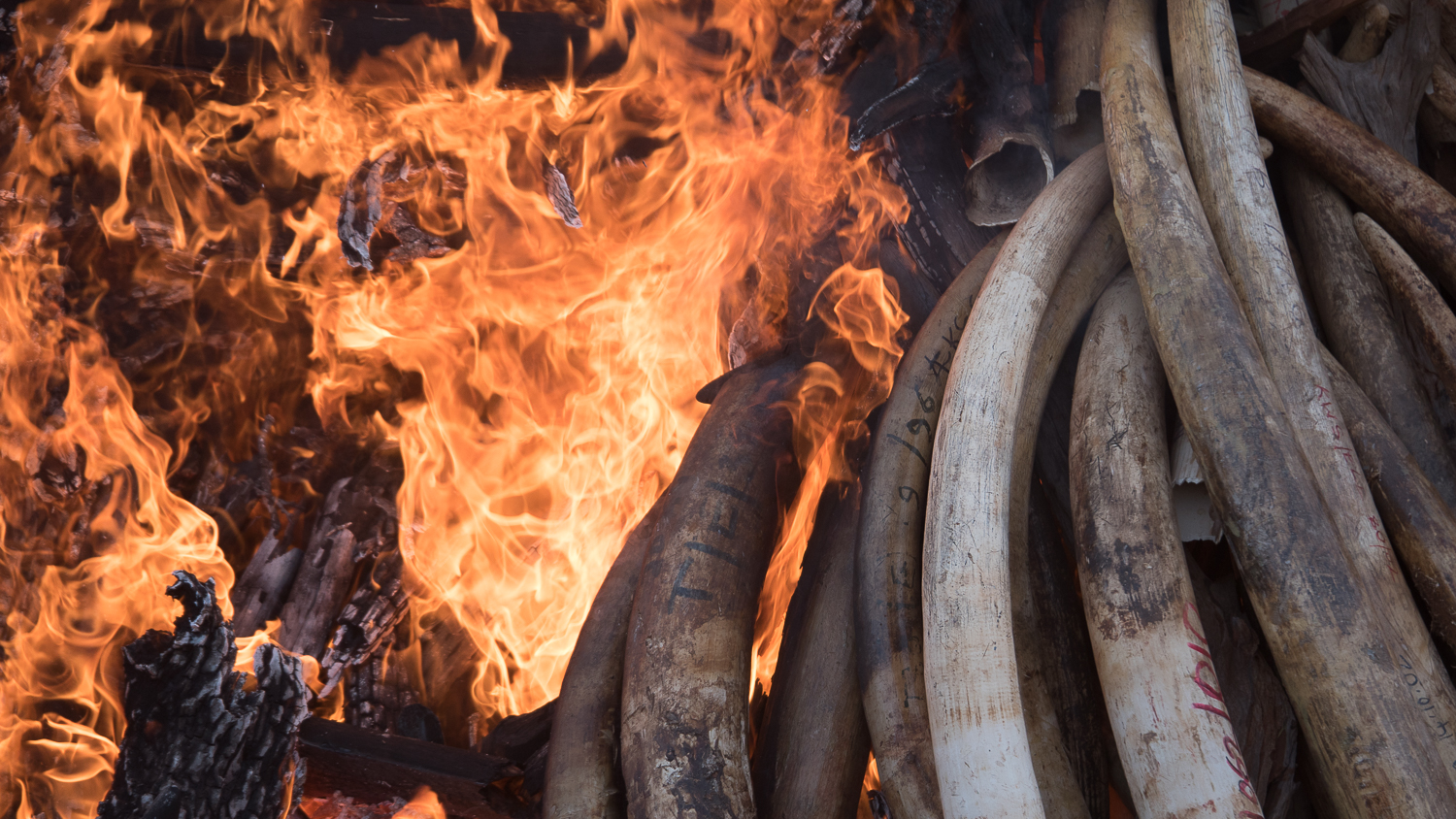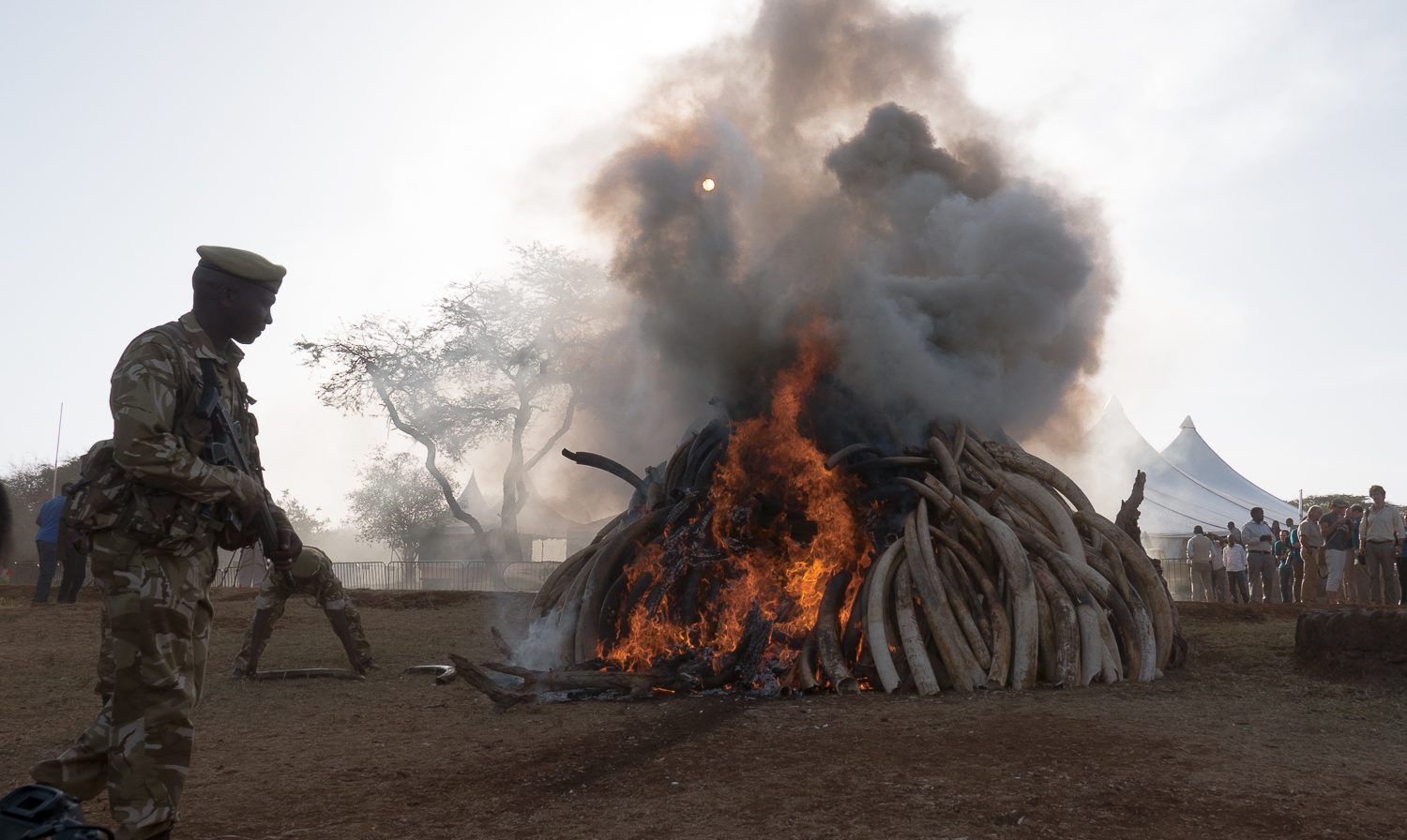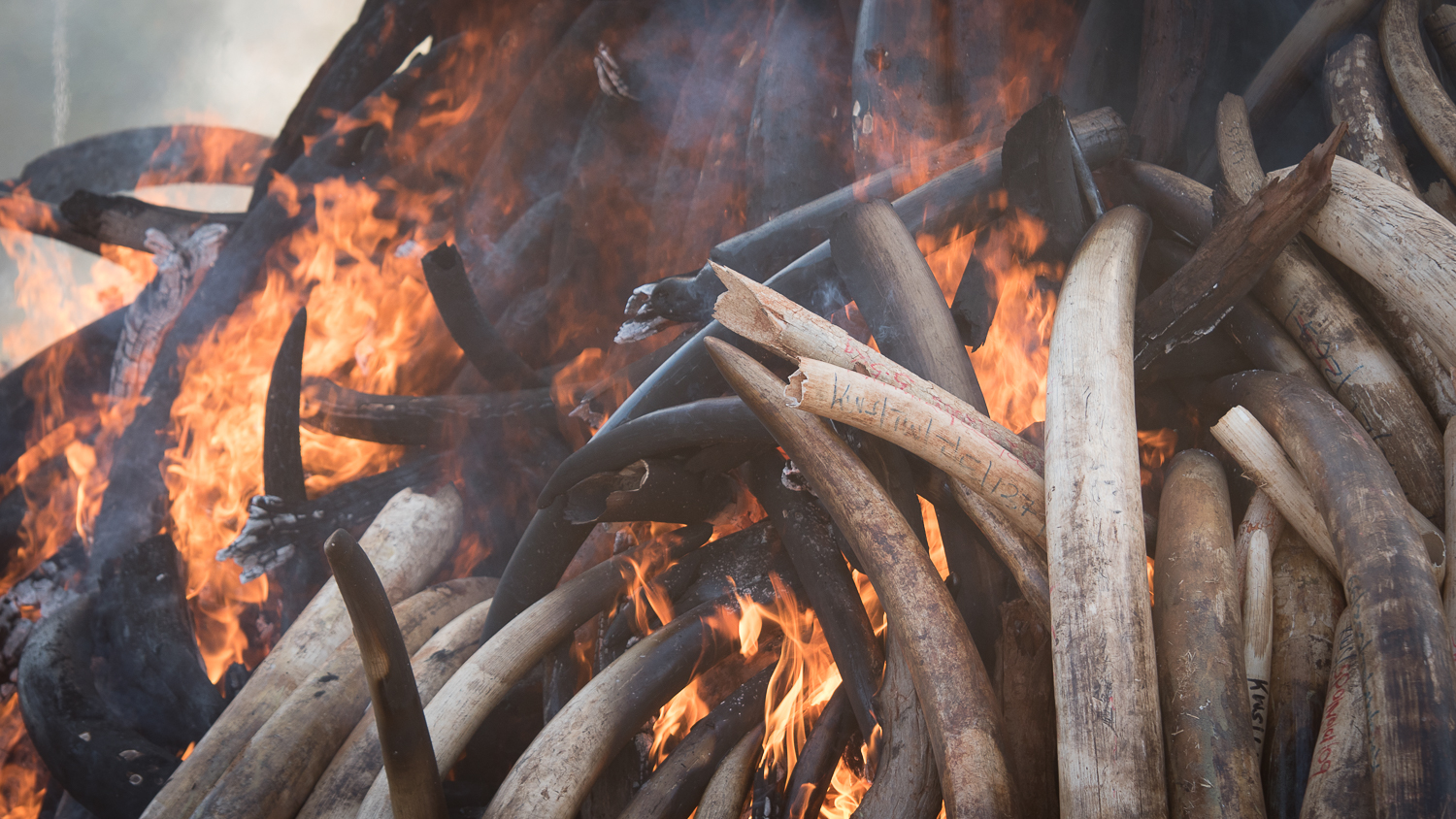Martin:
Kenyan president Uhuru Kenyatta has set fire to £20 million worth of elephant ivory in an effort to put an end to poaching in the country. The ivory pile, weighing 15 tonnes was set alight on Tuesday 4th March to commemorate World Wildlife Day. Kenya hopes that by demonstrating that it is willing to put confiscated ivory beyond economic use that it can influence the end-user nations of ivory, especially China, whose hunger fuels the slaughter of elephants and rhinos in Africa. Responding to increasing criticism China, last week, imposed a one-year ban on ivory imports despite its citizens' huge appetite for ivory.
But twenty-five years since the ivory trade was banned African nations remain concerned about the rising demand for ivory from the emerging nations. The charity Save the Elephants estimates that 100,000 elephants were killed between 2010 and 2012.
The burning has made headlines around the world but it seems most journalists were only tipped off about the event the night before. So I'm hugely indebted to my friend Debbie Kirby who heard about it early on Tuesday morning and put me in contact with the Kenya Wildlife Service. A mad dash across Nairobi got me to the park just in time to be accredited for the ceremony. The sight of what amounts to a funeral pyre for hundreds of needlessly slaughtered elephants is one that will live with me for some time.
Here's a quick edit of the footage:
Kenya has promised to destroy the remainder of it's ivory stockpile, an estimated 115 tonnes, by the end of the year.
"We want future generations of Kenyans, Africans and indeed the entire world to experience the majesty and beauty of these magnificent animals." President Kenyatta said. "Poachers and their enablers will not have the last word in Kenya."
Meanwhile, on the final day of his tour of China, Prince William has condemned illegal wildlife trading while visiting an elephant sanctuary in the province of Yunnan.
Prince William called it a "vicious form of criminality" that "erodes the rule of law, fuels conflict and may even fund terrorism".
He went on to say: "The greatest threat to elephants worldwide today is not local farmers protecting their livelihoods, it is ruthless and organised poaching and trafficking."
